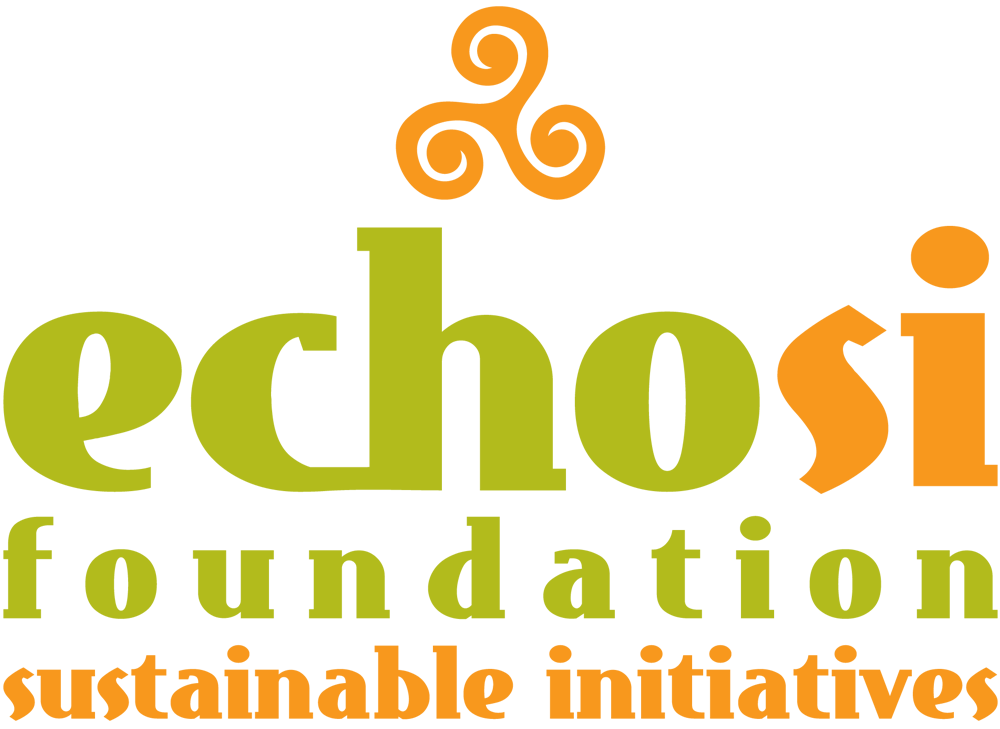News
Women of ‘Yolanda’ and Marawi weave hope amid tragedies
Seeking to inspire hope in their communities by rewriting the disaster-victim narrative, Maranao weavers and Tacloban seamstresses have banded together to create the Kadasig reusable face masks to revive the local fabric and clothing industry.
Through a partnership between Pilipinas Shell Foundation Inc. (PSFI) and ECHOsi Foundation, Inc., each with their own community-driven livelihood development programs for the women of Tacloban and Marawi respectively, these two women’s groups have been brought together to produce an essential item in these challenging times: the Kadasig reusable face mask that helps reduce the risk of COVID-19 transmission and infection.
“Kadasig, which means resilient in Waray-Waray, is not only about celebrating the heritage of our indigenous fabric but the tangible output of their fortitude,” said PSFI executive director Sebastian Quiniones Jr. “It has already been years since the tragedies of Typhoon ‘Haiyan’ and the Marawi Siege, and many in the affected communities are still struggling with rehabilitation. This is why the Kadasig project is also about supporting these women as they change the narrative so often told about their communities.
Designed based on the guidelines released by the World Health Organization (WHO) for nonmedical face masks, the Kadasig face mask is made up of three layers using a combination of absorbent and nonabsorbent materials to ensure full protection.
The unique weave on the outer layer was made by the Maranao weavers using a traditional backstrap loom. More than generating needed income, the Maranao women also seek to revive the weaving tradition, which is an important part of their culture.
“Kabaya ame a makuwa a grupo ame na katukawan o kadakelan so kultura ame knaba bu sa Pilipinas ka sa intero a dunya (Our hope is that our culture will be known, not just here in the Philippines, but all over the world),” said Rahma Abad, one of the Maranao weavers.
The Maranao weave, in turn, is used by the seamstresses of Tacloban, who cut, sew and structure the traditional fabric into the final Kadasig face mask.
“19 na ako ka tuig nga mananahi hin damu la nga mga klase hin tarahi-on sugad hin mga bistida, blouse, pantalon, uniforms, PPE, masks o bangot, ngan damu pa nga iba (I have been sewing for 19 years. I sew many different kinds of things, like dresses, blouses, pants, uniforms, personal protective equipment, masks and many others),” said Rosalia Ramirez, the head of the Tacloban seamstress group. “Dili masukol and amon kalipay nga mayda kami natahe nga tikang ha Marawi (Our happiness is beyond words, knowing that we are able to make masks from weaves of Marawi).”
Amid the challenge of rehabilitation and the obstacles faced due to the ongoing pandemic, these two women’s groups are helping their communities pick themselves up again. As part of its commitment to being the Philippines’ partner in nation-building, Pilipinas Shell continues to support these local communities as they recover.
The Kadasig reusable face masks are available at echostore.ph
This article first appeared on Business Inquirer on March 12, 2021
These reusable face masks are made by Maranao weavers, Tacloban seamstresses
MANILA — Maranao weavers and Tacloban seamstresses have come together to create reusable face masks as they hope to rewrite the disaster-stricken narrative in their communities while adapting to the new normal caused by the COVID-19 pandemic.
Called Kadasig, the face masks were made through a partnership with Pilipinas Shell Foundation Inc. (PSFI) and ECHOsi Foundation Inc., each with their own community-driven livelihood development programs for the women of Tacloban and Marawi, respectively.
“Kadasig, which means resilient in Waray-Waray, is not only about celebrating the heritage of our indigenous fabric but the tangible output of their fortitude,” PSFI executive director Sebastian Quiniones Jr. said in a statement.
“It has already been years since the tragedies of typhoon Haiyan and the Marawi siege, and many in the affected communities are still struggling with rehabilitation. This is why the Kadasig project is also about supporting these women as they change the narrative so often told about their communities,” he added.
“Instead of the tragedies that have come to define them, they can once again express their hopes and dreams, one thread and stitch at a time.”
Designed based on the guidelines released by the World Health Organization for non-medical face masks, the Kadasig is made of three layers using a combination of absorbent and non-absorbent materials.
The unique weave on the outer layer was made by the Maranao weavers using a traditional backstrap loom. The Maranao weave, in turn, is used by the seamstresses of Tacloban, who cut, sew, and structure the traditional fabric into the final product.
The Kadasig reusable face masks are available for purchase on the ECHOstore website.
This article first appeared on ABS-CBN on Feb 29, 2021
GREAT Holiday Baskets celebrate stories of women’s determination in the season of hope
“Marami po akong natutunan. Nakakataba ng puso na kahit ganito pa lang kaliit ang business namin, nasa tamang direksyon kami,” said Agnes Querubin of Don’s Enterprise, a micro-enterprise from San Luis, Aurora. (I learned a lot. It is heartwarming that although our business is still small, we know we are in the right direction.)
Querubin is one of the women micro-entrepreneurs (WMEs) being assisted by ECHOsi Foundation and GREAT Women Project to develop and market their products.
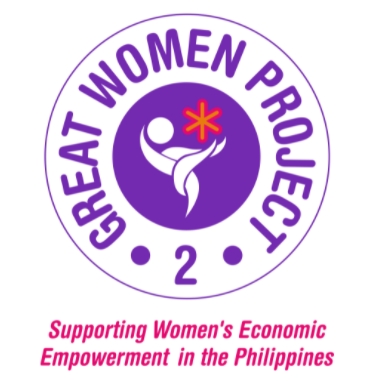
ECHOsi Foundation is a non-profit organization that advocates sustainability by empowering communities and marginalized groups including women. On the other hand, GREAT Women Project is an innovative private-public partnership that started in 2012 under the ECHOsi Foundation in partnership with the governments of Canada and the Philippines. Since its inception, the project has been helping WMEs reach their markets.
There were 831 WMEs enrolled in the project when the pandemic seemed to put the world on pause. But ECHOsi did not stop equipping these WMEs. Through webinars, the WMEs gained digital knowledge, design adaptation, and innovation skills.
Rowena Raymundo of Raymundo’s Homemade Products from Tagum, Davao del Norte attended one of the recent webinars and was grateful for her new learning on how to pack and label her products. “It enhanced my products and helped them become more appealing to consumers,” she said.
Despite the challenges in the logistics, a few remained relentless and continued with the program. Their products are mementos of their stories of determination, grit, and interest to proceed despite the odds.
Their stories of resilience are weaved together in the GREAT Holiday Baskets. These baskets of stories feature staples like brown rice, teas, and condiments; jellies, spreads, and snacks; and other green, functional and sustainable products. All these products are 100% natural, 100% Filipino, and 100% women-crafted.
The GREAT Holiday Basket comes in four variants; Coffee, Choco and Tea Basket, All Around Sauce Basket, Morning Basket, and Merienda Time Basket. All variants come in reusable, environment-friendly pandan baskets made by Asher Native Handicrafts. Sending your loved ones these baskets is a perfect way to show your love and care and at the same time promote a sustainable lifestyle, help local producers, and empower women.
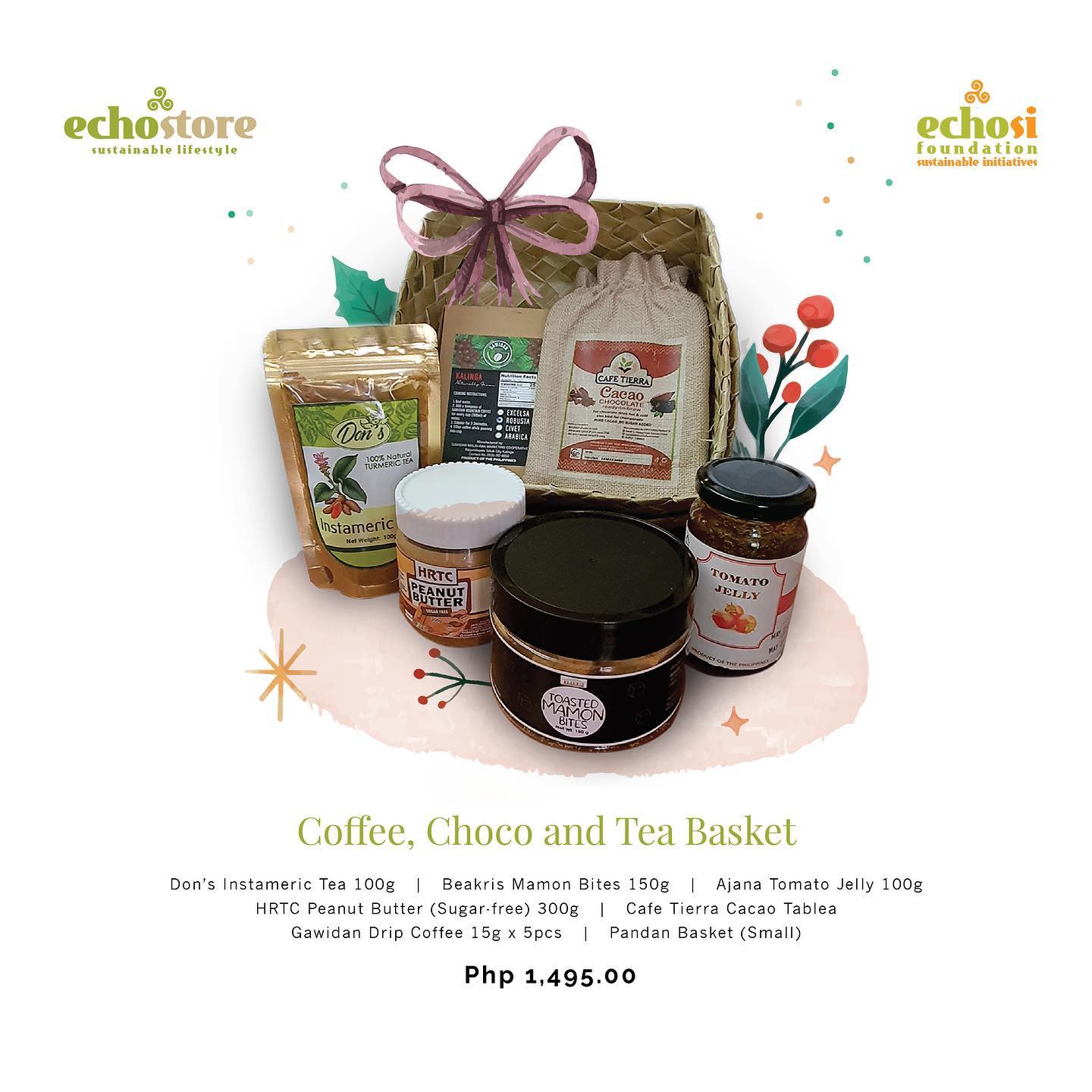
Coffee, Choco and Tea Basket contains everything one needs to enjoy hot drinks during the cold breeze of the Ber months. This basket includes Cafe Tierra Cacao Tablea by Rodelyn Sarmiento Matila of Caf’s Food Products in Tuao, Cagayan.
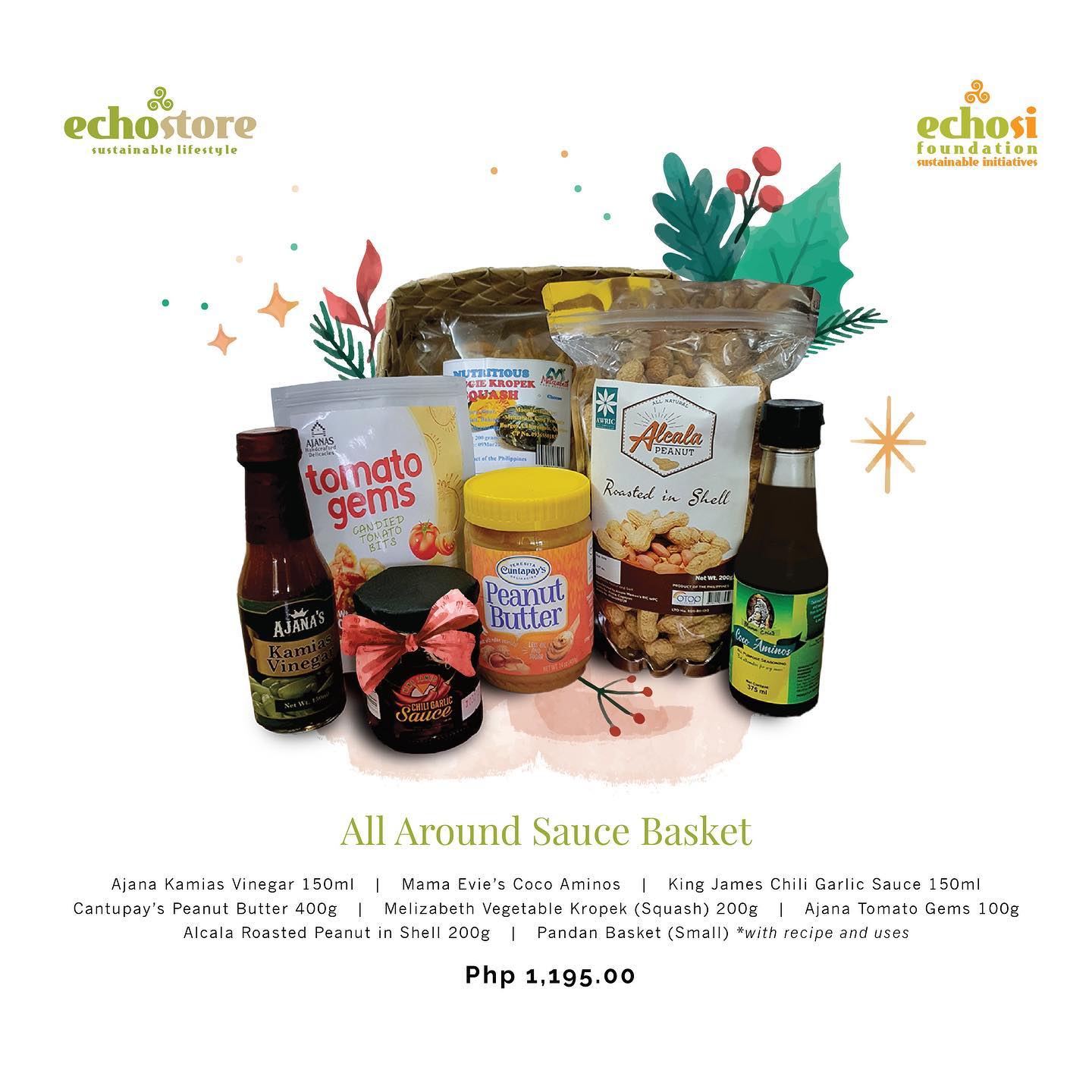
All Around Sauce Basket contains essential condiments like Ajana Kamias Vinegar by Cleofe Abiva of Ajanas Handcrafted Delicacies in Nueva Ecija; and King James Chili Garlic Sauce by Christine Grace Oyos of S and D Food Products in Santiago City, Isabela. The set comes with recipes and guides on how to prepare all-time favorite dishes this holiday season.
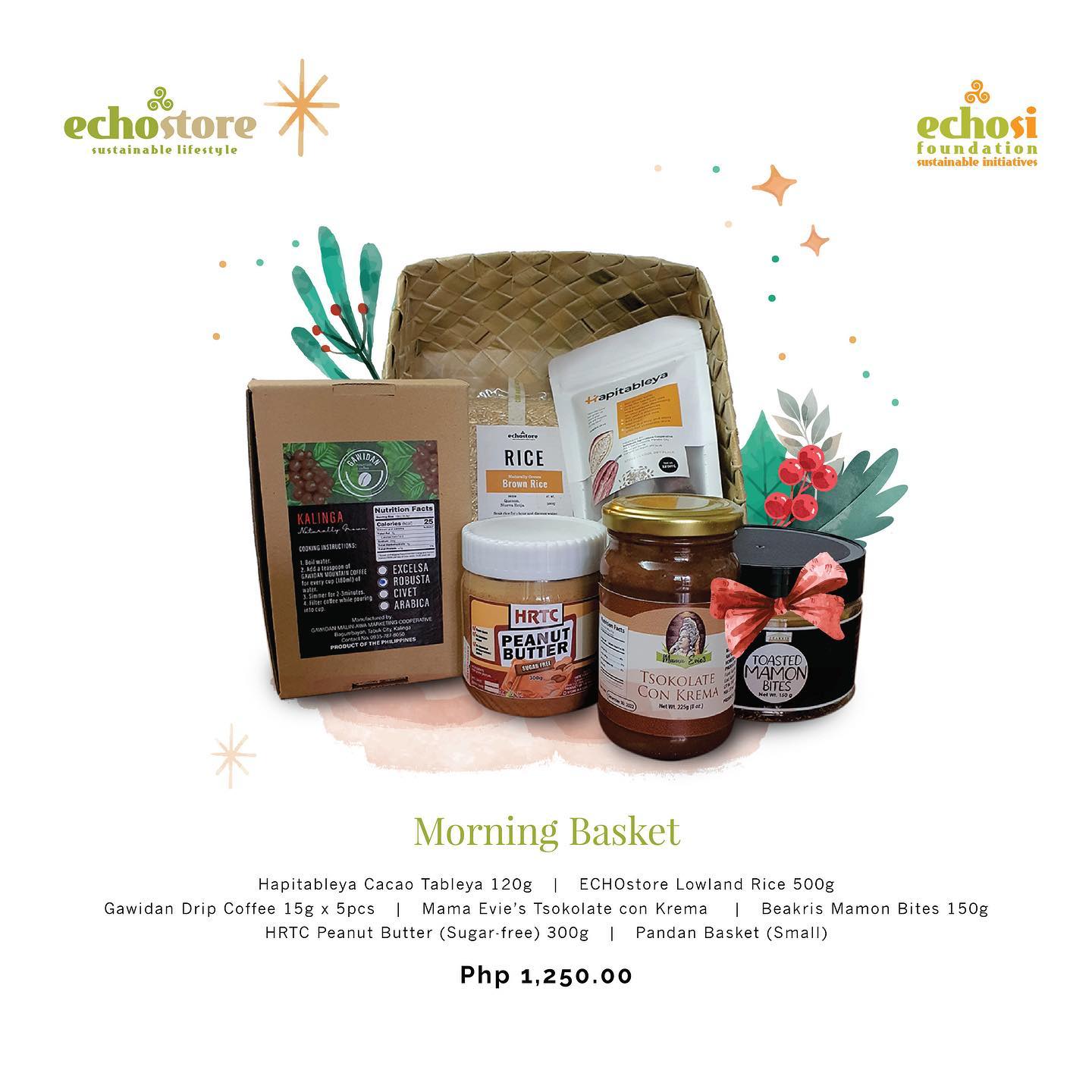
Morning Basket is a toolkit to jumpstart one’s day. Included in the basket is ECHOstore Lowland Rice for those who prefer rice for breakfast. HRTC’s sugar-free Peanut Butter by Teresita Cordova of Victoria, Tarlac is also included for those who prefer bread.
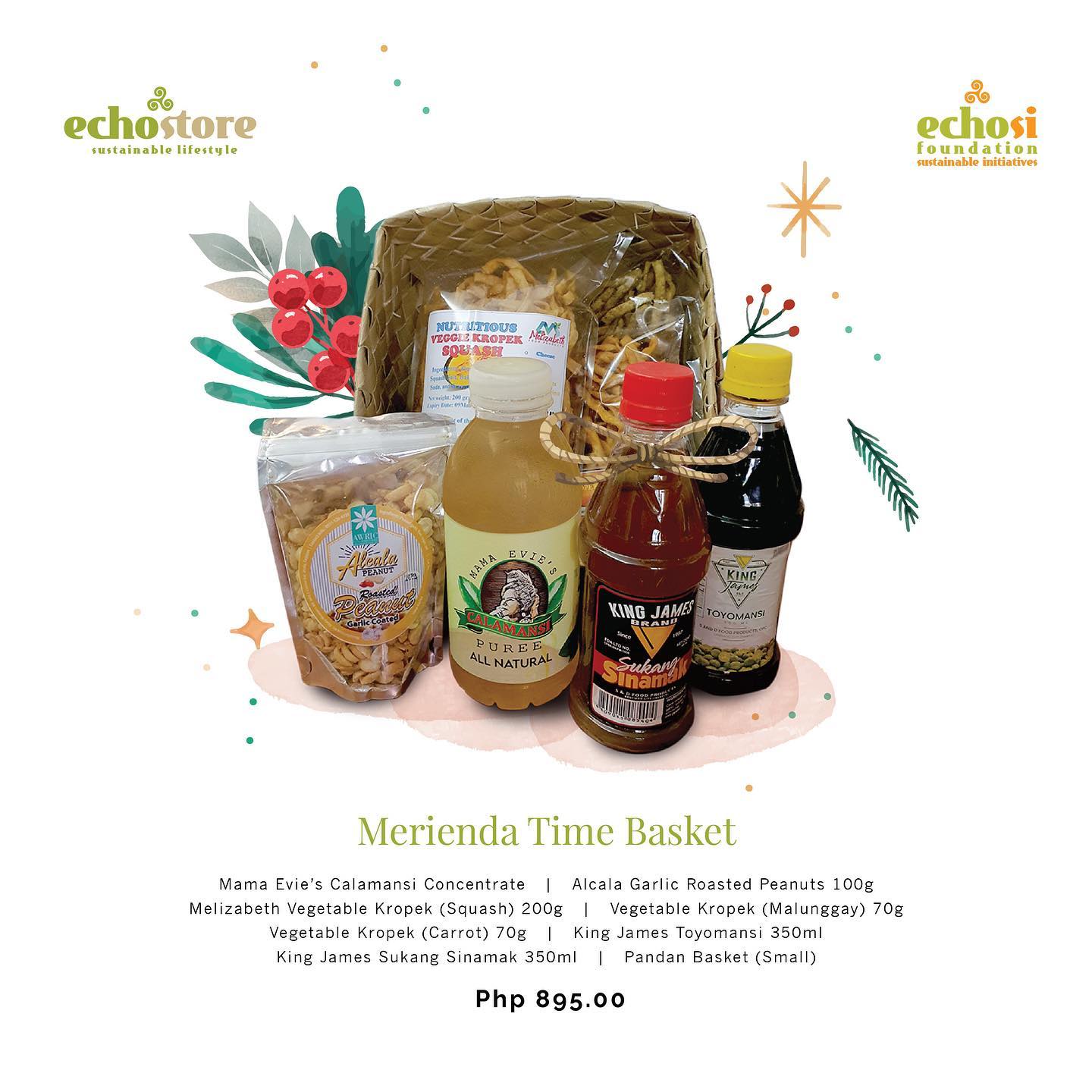
Merienda Time Basket features Vegetable Kropeks by Elisa Tomas of Melizabeth Food Products in Burgos Can, Quirino; and dips that satisfy one’s afternoon cravings, like Mama Evie’s Calamansi Concentrate by Rowena Raymundo.
The four baskets are a culmination of the GREAT Women Project, an empowering and innovative activity by ECHOsi Foundation.

Each purchase of the GREAT Holiday Basket is a celebration of the stories of perseverance of WMEs; stories we need to tell and hear to inspire and empower other women.
All these products will be available at echostore.ph.
THE WOMEN OF YOLANDA AND MARAWI WEAVE HOPE AMID TRAGEDIES
Seeking to inspire hope for the future in their communities by rewriting the disaster-victim narrative, Maranao weavers and Tacloban seamstresses have banded together to create the Kadasig reusable face masks to revive the local fabric and clothing industry.
Through a partnership between Pilipinas Shell Foundation, Inc. (PSFI) and ECHOsi Foundation, Inc., each with their own community-driven livelihood development programs for the women of Tacloban and Marawi respectively, these two women’s groups have been brought together to produce an essential item in these challenging times: the Kadasig reusable face mask that helps reduce the risk of COVID-19 transmission and infection.
“Kadasig, which means resilient in Waray-Waray, is not only about celebrating the heritage of our indigenous fabric but the tangible output of their fortitude,” said PSFI Executive Director, Sebastian Quiniones Jr.

Made with traditional Maranao weaves, the Kadasig reusable face mask is an essential item for the pandemic that is rewriting the story of disaster-stricken areas, Tacloban and Marawi.
“It has already been years since the tragedies of Typhoon Haiyan and the Marawi Siege, and many in the affected communities are still struggling with rehabilitation. This is why the Kadasig project is also about supporting these women as they change the narrative so often told about their communities.
“Instead of the tragedies that have come to define them, they can once again express their hopes and dreams, one thread and stitch at a time.”
Designed based on the guidelines released by the World Health Organization (WHO) for non-medical face masks, the Kadasig face mask is made up of three layers using a combination of absorbent and non-absorbent materials to ensure full protection.

Using a backstrap loom, the Maranao weaving method entails hours and days of sitting on the ground to get the right angle for weaving.
The unique weave on the outer layer was made by the Maranao weavers using a traditional backstrap loom. More than generating needed income, the Maranao women also seek to revive the weaving tradition, which is an important part of their culture.
“Kabaya ame a makuwa a grupo ame na katukawan o kadakelan so kultura ame knaba bu sa Pilipinas ka sa intero a dunya,” said Rahma Abad, one of the Maranao weavers. [Our hope is that our culture will be known, not just here in the Philippines, but all over the world.]
The Maranao weave, in turn, is used by the seamstresses of Tacloban, who cut, sew, and structure the traditional fabric into the final Kadasig face mask.
“19 na ako ka tuig nga mananahi hin damu la nga mga klase hin tarahi-on sugad hin mga bistida, blouse, pantalon, uniforms, PPE, masks o bangot, ngan damu pa nga iba,” said Rosalia Ramirez, the head of the Tacloban seamstress group. “Dili masukol and amon kalipay nga mayda kami natahe nga tikang ha Marawi.” [I have been sewing for 19 years. I sew many different kinds of things, like dresses, blouses, pants, uniforms, PPEs, masks, and many others. Our happiness is beyond words, knowing that we are able to make masks from weaves of Marawi.]

Securing a sustainable livelihood remains to be a challenge in Tacloban for those affected by the 2013 typhoon. These seamstresses seek to help the local economy by strengthening the clothing business.
Amid the challenge of rehabilitation and the obstacles faced due to the ongoing pandemic, these two women’s groups are helping their communities pick themselves up again. As part of its commitment to being the Philippines’ partner in nation-building, Pilipinas Shell continues to support these local communities as they recover today so that they can have a brighter future tomorrow.
The Kadasig reusable face masks are now available for purchase on the ECHOstore website.
